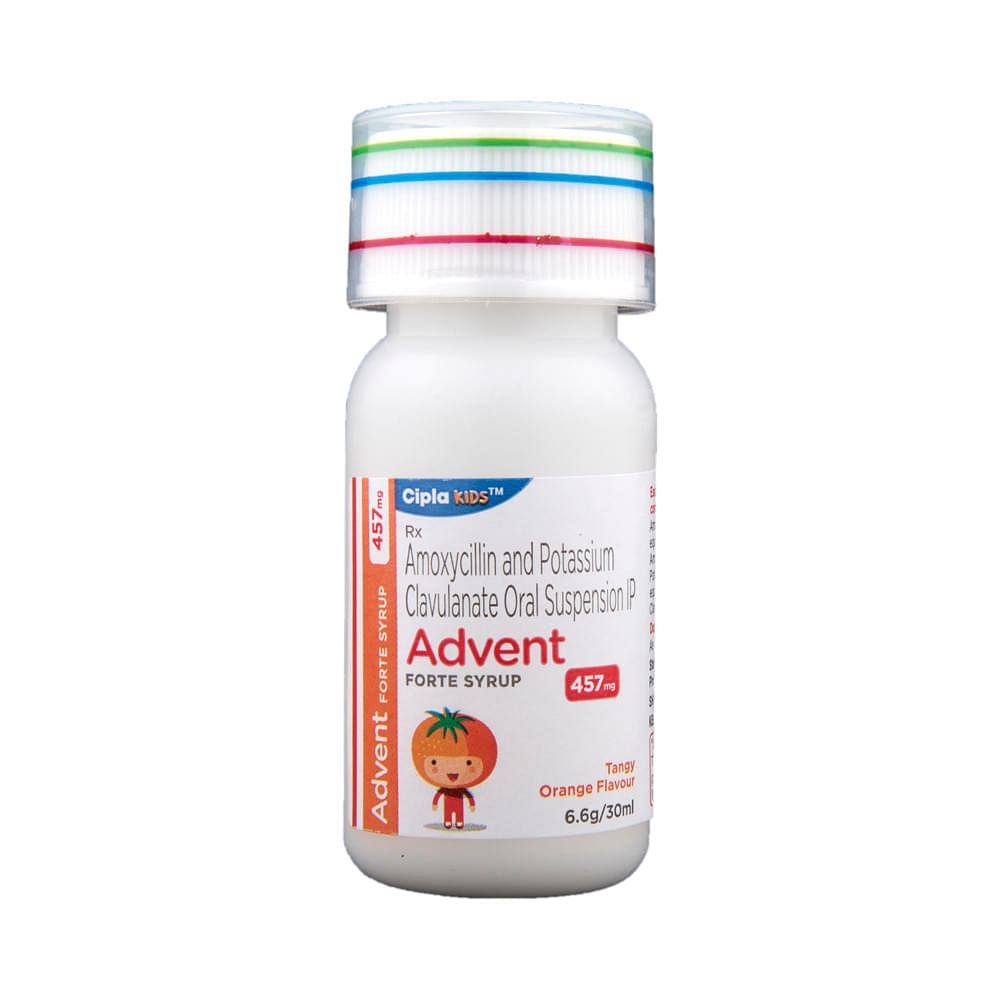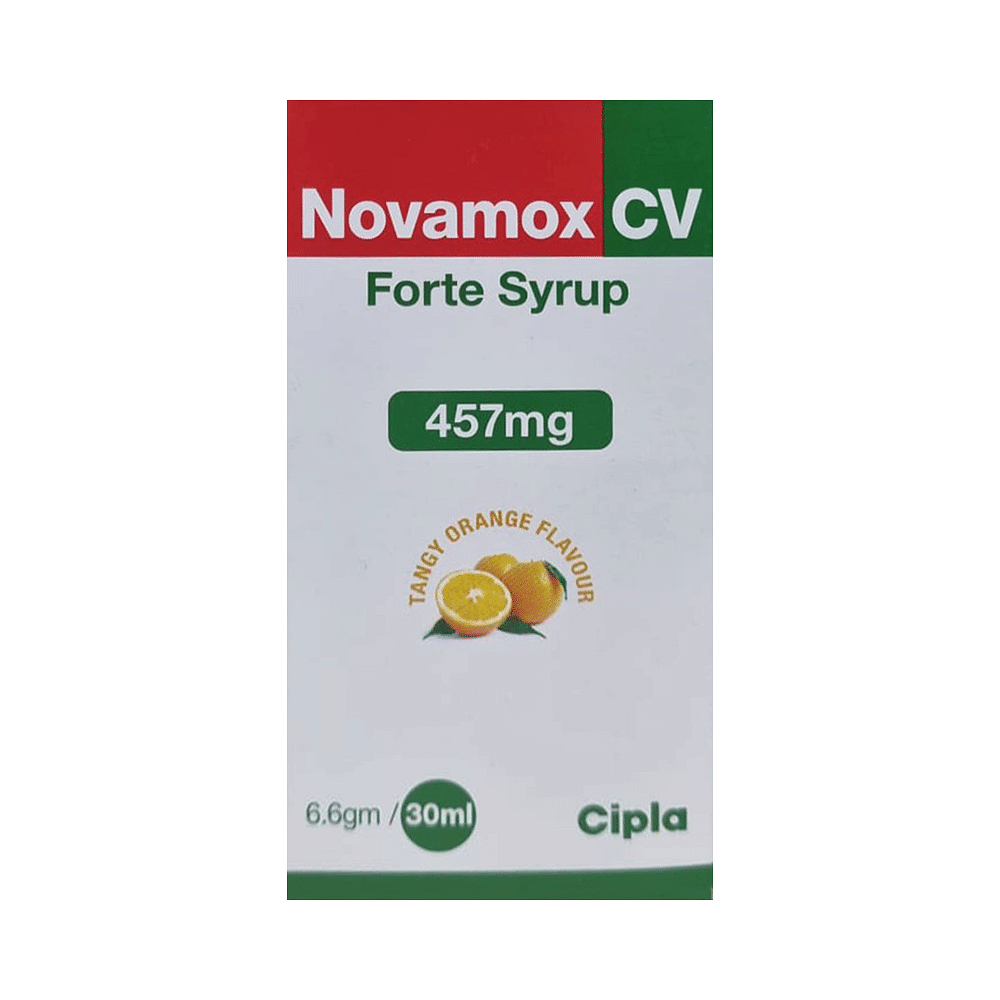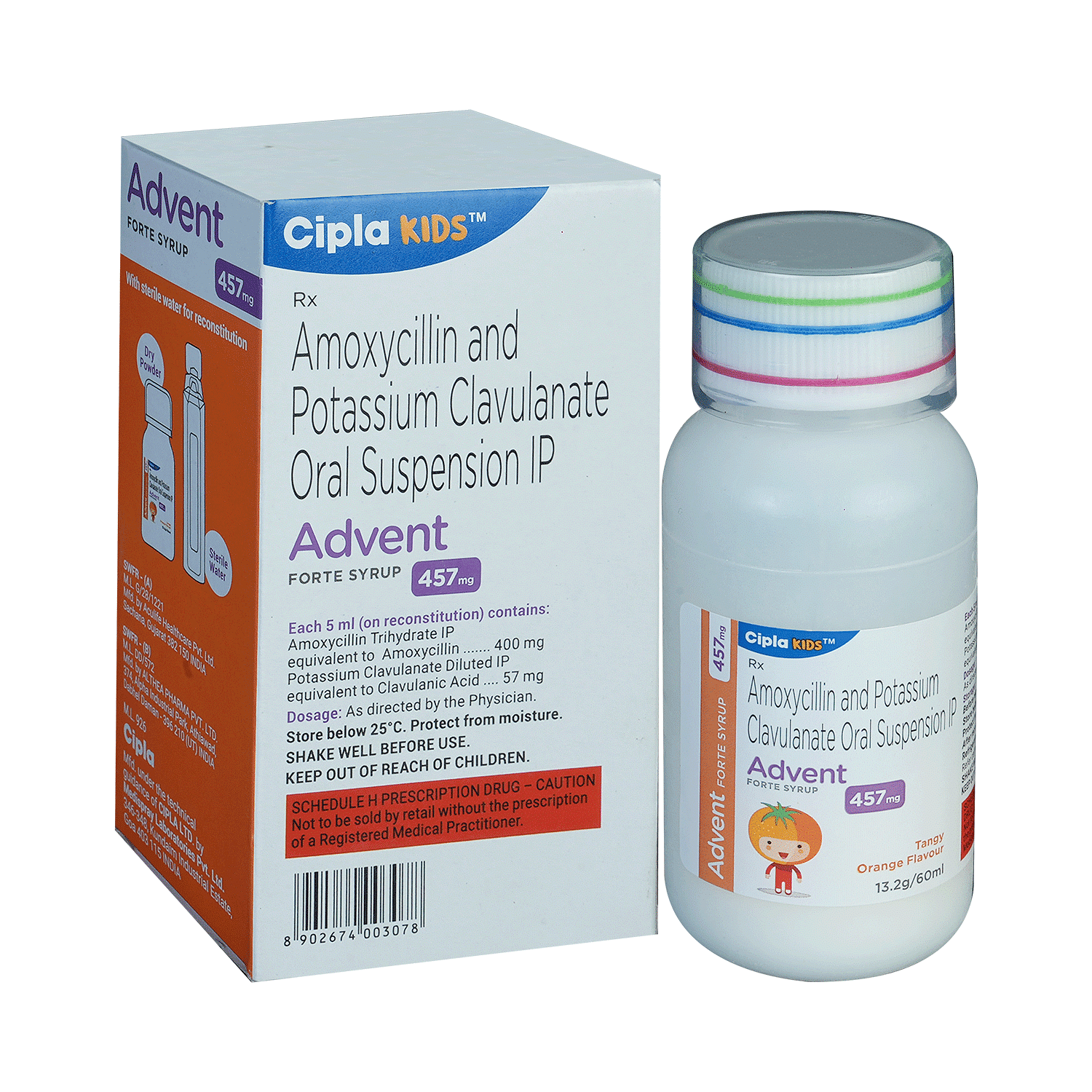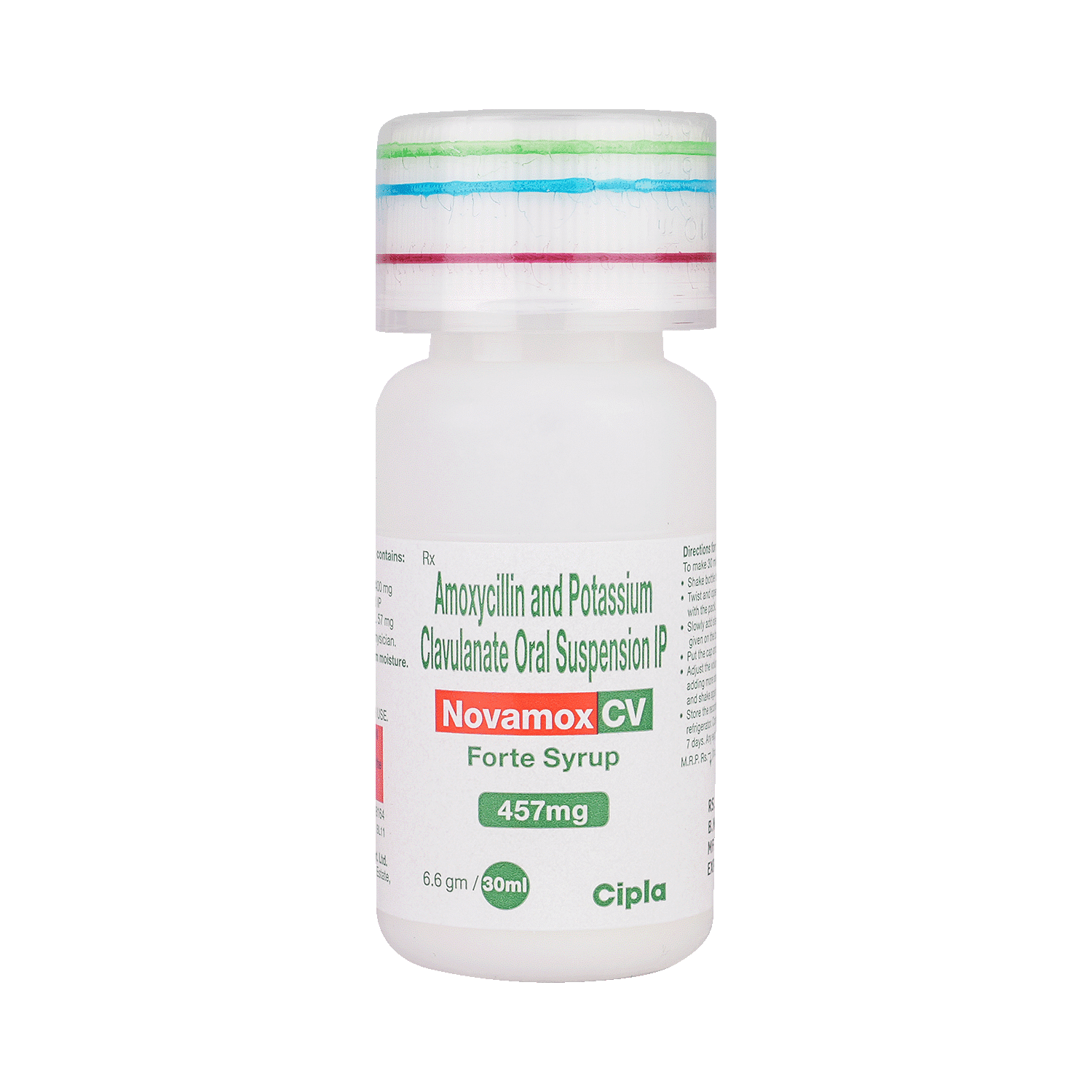
Satclav DS Syrup
Manufacturer
ADN Pharmaceuticals Pvt Ltd
Salt Composition
Amoxycillin (400mg/5ml) + Clavulanic Acid (57mg/5ml)
Key Information
Short Description
Satclav DS Syrup is an antibiotic medicine that helps treat bacterial infections of the ear, nose, throat, chest, lungs, teeth, skin, and urinary tract.
Dosage Form
Syrup
Introduction
Satclav DS Syrup is an antibiotic medicine that helps treat bacterial infections of the ear, nose, throat, chest, lungs, teeth, skin, and urinary tract. It is capable of killing bacteria that have become resistant to other therapies and thus also helps treat tuberculosis that is resistant to other treatments.
Directions for Use
Your child must complete the entire course of antibiotics. Stopping too soon may cause the bacteria to multiply again or cause another infection.
Safety Information
Side Effects
Bitter taste in the mouth after intake Diarrhea Itchy rash, facial swelling, or breathing difficulty (stop the medicine and consult a doctor immediately)
How it works
Satclav DS Syrup is an antibiotic. It has two active agents amoxycillin and clavulanic acid. Amoxycillin works by preventing the formation of the bacterial protective covering (cell wall) essential for the survival of the bacteria. Whereas clavulanic acid serves a special purpose of inhibiting an enzyme (beta-lactamase) that is produced by resistant bacteria.
Quick Tips
Your child must complete the entire course of antibiotics Encourage your child to drink plenty of water in case diarrhea develops as a side effect Never give Satclav DS Syrup until and unless prescribed by the doctor Do not give Satclav DS Syrup to treat common cold and flu-like symptoms caused by viruses Check 'expiry' before giving Satclav DS Syrup to your child
Related Medicines

Advent Forte 457mg Syrup Tangy Orange

Novamox CV Forte Syrup

Advent Forte 457mg Syrup Tangy Orange

Curam 400mg/5ml/57mg/5ml Syrup

Novamox CV Forte Syrup

Moxifide Duo Syrup

Clavar DS Syrup

Clavnax Forte Syrup

Amoclave DS Syrup

Moxbro-CV DS Syrup
Frequently asked questions
Can other medicines be given at the same time as Satclav DS Syrup?
It is important to consult your doctor before giving any medicine to your child, including Satclav DS Syrup. Satclav DS Syrup may interact with certain medications or substances. Your doctor can advise on appropriate combinations and dosages based on your child's individual needs.
Can I get my child vaccinated while on treatment with Satclav DS Syrup?
Generally, antibiotics do not interfere with vaccines. However, if your child is experiencing an illness, it is best to wait until they have recovered from the infection before receiving any additional medications. When they feel better, vaccination can be administered as directed by your doctor.
Which lab tests may my child undergo while taking Satclav DS Syrup on a long-term basis?
Regular monitoring of kidney and liver function is typically recommended for prolonged antibiotic therapy to assess the impact on organ health. Consult your doctor for specific guidance based on your child's age, condition, and treatment plan.
Can I give a higher than the recommended dose of Satclav DS Syrup to my child?
Giving an excessive dose of Satclav DS Syrup can increase the risk of side effects. Always adhere to your doctor's prescribed dosage for optimal effectiveness and safety.
Can I stop giving Satclav DS Syrup to my child when the symptoms are relieved?
No, do not stop administering this medication unless you have completed the full course as directed by your doctor. It is important to continue treatment even if symptoms improve, because the medicine may still have beneficial effects that need time to complete.
Can the use of Satclav DS Syrup cause diarrhea?
Yes, Satclav DS Syrup can potentially cause diarrhea. This is due to its antibiotic nature which targets and removes harmful bacteria. It may also alter the balance of good bacteria in your child's gut, leading to diarrhea. If your child experiences diarrhea, encourage them to drink plenty of fluids. However, if symptoms persist or worsen, especially if you notice signs of dehydration (reduced urine output with dark-colored and foul-smelling urine), it is crucial to contact your doctor.
Do all viral common colds result in secondary bacterial infection?
Most often, the initial cold itself does not lead to secondary bacterial infections. However, if your child's condition worsens or there are other signs of illness (fever, cough, etc.), a doctor should evaluate and decide whether antibiotics are needed.
The mucus coming out of my child’s nose is yellow-green. Is it a sign of a bacterial infection?
A change in the color of mucus (from clear to yellow or green) during a common cold is usually normal. While this may indicate that your child's body is fighting off the infection, it does not necessarily signify a bacterial infection. The duration of symptoms typically ranges from 7 to 10 days. You should consult with your doctor if you have any concerns or notice unusual symptoms.
Is there any sign which shows that my child needs immediate medical attention?
You should contact your child's doctor immediately if they experience a serious allergic reaction (breathing difficulties, skin rashes), gastrointestinal distress (diarrhea), or signs of liver damage (weakness, paleness, vomiting). These are rare but potentially life-threatening side effects that require immediate medical attention from a healthcare professional.


